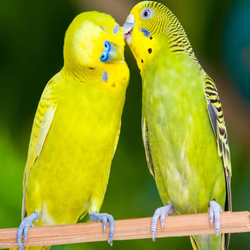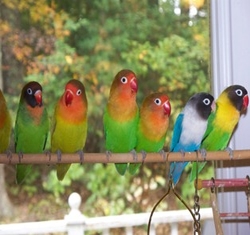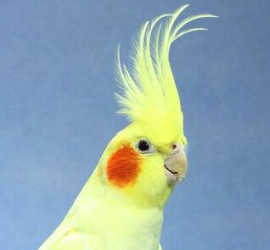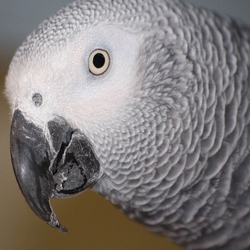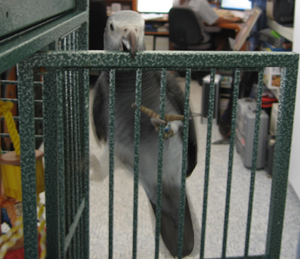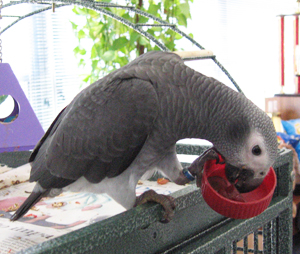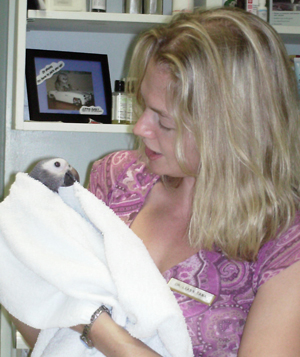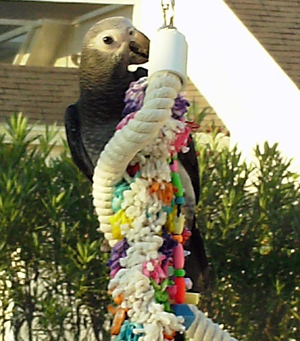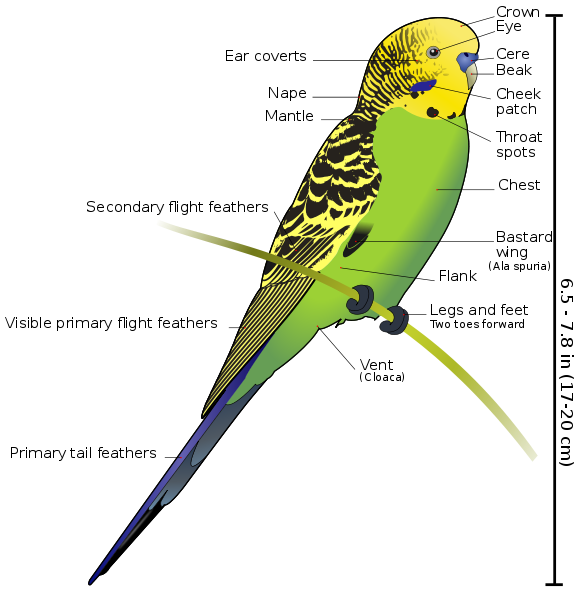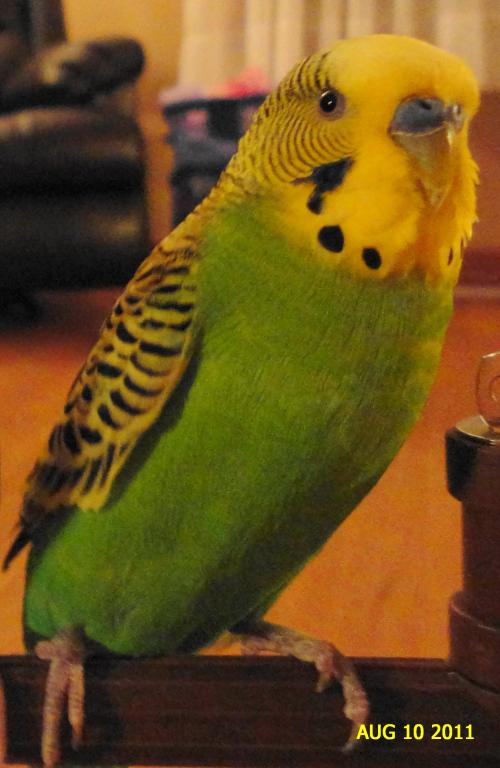African Grey Parrot – Food, Supplements and Toxics

Let’s admit it, who doesn’t like a most charming birds of all. Yup, Parrots! From small Australians to large African Grey Parrot, every kind has a unique charm to it that lures not only kids but adults alike. African Grey Parrot is one of the most magnificent parrots of all and certainly has a higher Parrot IQ level than most kinds, making them the most wanted petting option.
African Grey Parrot food preference as mostly based on its natural habitat and the name is a tell tale of the region. Largely considered omnivorous due to a lack of fixed food preferences, but Grey Parrot supplements have opened new and healthy options for pet owners.
African Grey parrot Supplements
Although Grey parrots don’t have a hard and fast preferences but their mood swings has a say in their eating habits. Like any pet, a healthy diet is vital for them covering proteins and carbohydrates to withstand the weather conditions.
Vitamins for Grey Parrots
Vitamins may sound like an important ingredient of any diet but be very cautious when opting vitamins for your Grey parrots. Most Grey parrots on a pelleted diet do not require additional vitamins so you should consult your veterinary physician’s prescription.
African Grey parrots do vitamins to fulfill their body requirements therefore a regular medical checkup to ensure that they are getting proper diet and have deficiencies is highly advised. Some Greys are prone to vitamin A deficiencies but you should not provide supplements without an expert’s prescription.
Calcium for Grey Parrots
Calcium supplements is a slippery slope for in your Grey’s diet. On one hand African Grey parrot extraordinarily require more calcium as compared to all the other parrots. Developing Calcium deficiency is one of the common cases observed. On the other hand excessive calcium also causes various problems.
The best way to feed the bird a good amount of calcium is to place a block of calcium inside of its cage so it takes in a little amount every day or so. This amount shall be enough with a healthy diet for meets all the calcium requirements. However, your vet’s advise on the matter carries more weight than any article on the Internet.
Calcium is vital for muscle contraction, blood clotting, heart functions, bone growth and strength. This important supplement works well with sunlight I.e ample provision of vitamin D for your bird.
Fatty Acids for Grey Parrots
When it comes to skin and feather care you don’t want to miss on proper fatty acid intake. A balanced diet essentially has to have minerals, vitamins, calcium and fatty acids. Yup that’s how important they are and they don’t just serve as an effective skin and feather care agent.
Fatty acids plays an important role in lowering the cholesterol level and reduces the risk of heart attack. It also provides the ability to develop a better immune system so that it may survive possible common diseases among the bird family.
African Grey Parrot Food
Water for Grey Parrot
The essential for all life forms, yes, Water. Hydration is just as important for birds as it is for human beings and especially if you in hot weather when dehydration can cause these birds to collapse. Your African Greys should be given fresh and cool water. Use of impure water can cause the bird to fall sick.
Grey parrots have a very unique habit of drinking water after every meal, whether the meal consists of raw or cooked food, vegetables or meat, they take in some water. This is a natural process that assists their digestion process. Inability to provide fresh water to pet birds can cause upset stomach with unbearable stomachache.
Seeds for Grey Parrot
African Grey Parrots love to eat seeds but there is a mix opinion about whether or not seeds are a healthy food option for your pet. Palm fruit seeds are considered most common item on a Grey parrots diet plan. However to ensure a balanced diet, your parrot’s diet should have a combination of healthy vegetables and fruits. A proper balance of vegetables and fruits will keep the metabolic system strong.
Fresh Vegetables for Grey Parrot

Vegetables are a rich source of natural fiber for the body. There are a few vegetables which have proven to be more important for the African Grey Parrot as compared to other birds. these vegetables not only provide fiber but also provide nutrition to them. A list of highly recommended vegetables for African Parrots are:
- Sweet potato – can be served in the cooked and mashed form.
- Carrots have special vitamin A which is essential for Gray Parrots. It is sweet and can be served in the boiled form
- Peppers – green, red, and yellow betters are high in vitamin C which is essential for the bird’s immune system and will save it from switching to external supplements.
Other veggies include: Leafy dark green vegetables such as spinach, Broccoli or Cauliflower. These can be consumed raw or cooked, they are safe.
These vegetables are a natural source of most of minerals and vitamins but make sure they are properly washed before feeding these to your pet African Gray Bird.
Fruits for Grey Parrot
Fruits are a natural source of sugars for the parrots. These are healthy as well as sweet and are liked by the birds a lot. You should stick to the list of fruits mentioned below as these are vet approved, otherwise get your vet’s approval before trying a new fruit for your African Grey Parrot.
- Melons
- Dried dates
- Figs
- Gooseberries
- Mango and Papaya (with skins removed)
- Grapes
- Guava
- Honeydew
- Kiwi
- Apples
- Banana
- Blackcurrant
- Blueberry
- Cantaloupe
- Cherry
- Mango
- Pear
- Pineapple
- Pomegranate
- Raspberry
- Strawberry
Toxic Food for Grey Parrots
Following list of plants, flowers, beans and other items are toxic for African Grey Parrots where some are toxic for other birds as well others are toxic specifically for Grey Parrots.
- Arum Lily
- Amaryllis
- Apricot Tree
- Aralia
- Arrowhead Vine
- Autumn Crocus
- Flame Tree
- Umbrella Tree
- Avocado
- Azalea
- Baneberry
- Beans: (Castor, Horse, Fava, Broad, Glory, Scarlet Runner, Mescal, Navy and Pregatory)
- Bishop’s Weed
- Black Laurel
- Black Locust
- Bleeding Heart Or
- Dutchman’s
- Breeches
- Bloodroot
- Bluebonnet
- Bluegreen Algae
- Boxwood
- Bracken Fern
- Buckthorn
- Bulb Flowers: (Amaryllis, Daffodil, Narcissus, Hyacinth & Iris)
- Burdock
- Buttercup
- Cacao
- Camel Bush
- Castor Bean
- Caladium
- Cana Lily
- Cardinal Flower
- Chalice (Trumpet Vine)
- Cherry Tree
- China Berry Tree
- Christmas Candle
- Clematis (Virginia Bower)
- Clivia
- Cocklebur
- Coffee (Senna)
- Coffee Bean (Rattle bush, Rattle Box & Coffee weed)
- Coral Plant
- Coriander
- Corncockle
- Coyotillo
- Cowslip
- Cutleaf Philodendron
- Daffodil
- Daphne
- Datura Stramonium (Angel’s Trumpet)
- Death Camus
- Delphinium
- Devil’s Ivy
- Dieffenbachia (Dumb Cane)
- Elderberry
- Elephant Ear (Taro)
- English Ivy
- Ergot
- Eucalyptus (Dried, Dyed Or Treated in floral arrangements)
- Euonymus (Spindle Tree)
- Euphorbia Cactus
- False Hellebore
- Flame Tree
- Felt Plant (Maternity, Air & Panda Plants)
- Fig (weeping)
- Fire Thorn
- Flamingo Flower
- Foxglove
- Glottidium
- Golden Chain
- Grass: (Johnson, Sorghum, Sudan & Broom Corn)
- Ground Cherry
- Heaths: (Kalmia, Leucotho, Peires, Rhododendron, Laurel, Black Laurel, Andromeda & Azalea)
- Heliotrope
- Hemlock: (Poison & Water)
- Henbane
- Holly
- Honeysuckle
- Horse Chestnut
- Horse Tail
- Hoya
- Hyacinth
- Hydrangea
- Ivy: (English & Others)
- Jack-In-The-Pulpit
- Jasmine (Jessamine)
- Jerusalem Cherry
- Jimsonweed
- Juniper
- Ky. Coffee Tree
- Lantana (Red Sage)
- Larkspur
- Lily Of The Valley
- Lily, Arum
- Lobelia
- Locoweed (Milk Vetch)
- Locusts, Black/Honey
- Lords & Ladies (Cuckoopint)
- Lupine
- Malanga
- Marijuana (Hemp)
- Mayapple (Mandrake)
- Mexican Breadfruit
- Mexican Poppy
- Milkweed, Cotton
- Bush
- Mistletoe
- Mock Orange
- Monkshood
- Moonseed
- Morning Glory
- Mtn. Laurel
- Mushrooms
- Amanita
- Myrtle
- Narcissus
- Nectarine Tree
- Nettles
- Nightshades: (Deadly, Black, Garden, Woody, Bittersweet, Eggplant, & Jerusalem Cherry)
- Oak
- Oleander
- Oxalis
- Parsley
- Peace Lily
- Peach Tree
- Periwinkle
- Philodendrons: (Split Leaf, Swiss Cheese and Heart-Leaf)
- Pigweed
- Plum Tree
- Poinciana
- Poinsettia
- Poison Ivy
- Poison Hemlock
- Poison Oak: (Western & Eastern)
- Pokeweed
- Potato Shoots
- Pothos
- Privet
- Pyracantha
- Rain Tree
- Ranunculus,
- Buttercup
- Rape
- Rattlebox
- Crotalaria
- Red Maple
- Red Sage (Lantana)
- Redwood Tree
- Rhubarb Leaves
- Rhododendrons
- Rosary Pea Seeds
- Sago Palm
- Sand Box Tree
- Schefflera
- Skunk Cabbage
- Sorrel (Dock)Snow Drop
- Spurges: (Pencil Tree, Snow-On-Mtn, Candelabra & Crown Of Thorns)
- Star Of Bethlehem
- Sweet Pea
- Swiss Cheese Plant (Monstera)
- Tansy Ragwort
- Tobacco
- Umbrella Plant
- Vetch: Hairy/Common
- Virginia Creeper
- Wattle
- Weeping Fig
- White Cedar, China
- Berry
- Wisteria
- Yews
- Yellow Jasmine
FOR MORE DETAIL ABOUT TOXIC FOOD YOU CAN SEE MY ARTICLE : Toxic Food
While you should make sure that your African Grey Parrot never gets to eat one of the toxic items on this list making sure that a proper veterinary checks your bird on scheduled meetings is as important as selecting the right supplements and food items for your bird.




















